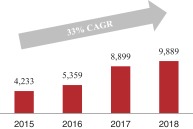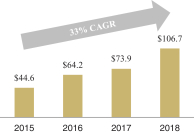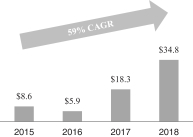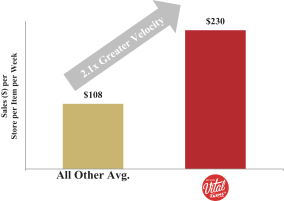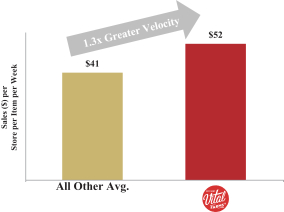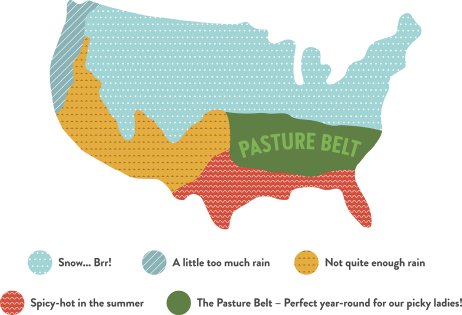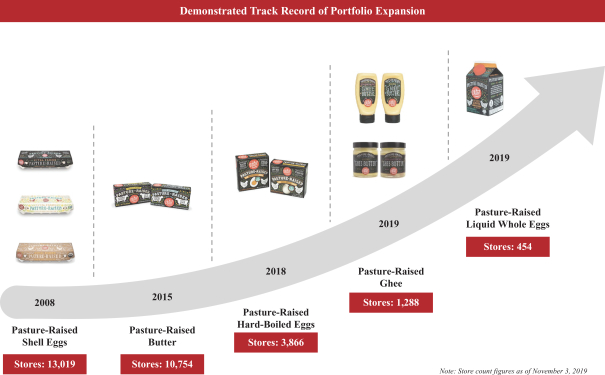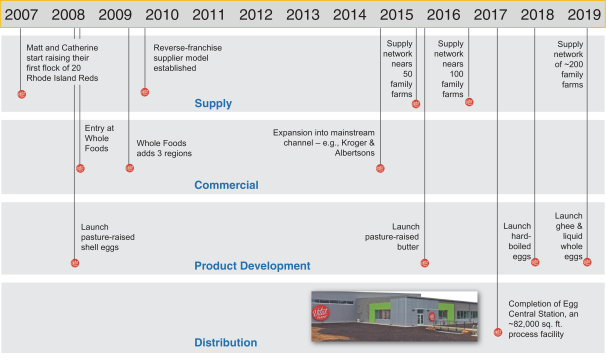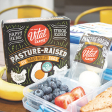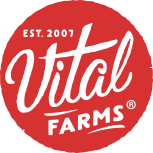Risks Related to Legal and Government Regulation
Food safety and food-borne illness incidents or advertising or product mislabeling may adversely affect our business by exposing us to lawsuits, product recalls or regulatory enforcement actions, increasing our operating costs and reducing demand for our product offerings.
Selling food for human consumption involves inherent legal and other risks, and there is increasing governmental scrutiny of and public awareness regarding food safety. Illness, injury or death related to allergens, food-borne illnesses, foreign material contamination or other food safety incidents caused by our products, or involving our suppliers, could result in the disruption or discontinuance of sales of these products or our relationships with such suppliers, or otherwise result in increased operating costs, regulatory enforcement actions or harm to our reputation. Shipment of adulterated or misbranded products, even if inadvertent, can result in criminal or civil liability. Such incidents could also expose us to product liability, negligence or other lawsuits, including consumer class action lawsuits. Any claims brought against us may exceed or be outside the scope of our existing or future insurance policy coverage or limits. Any judgment against us that is more than our policy limits or not covered by our policies or not subject to insurance would have to be paid from our cash reserves, which would reduce our capital resources.
The occurrence of food-borne illnesses or other food safety incidents could also adversely affect the price and availability of affected raw materials, resulting in higher costs, disruptions in supply and a reduction in our sales. Furthermore, any instances of food contamination or regulatory noncompliance, whether or not caused by our actions, could compel us, our suppliers, our distributors or our customers, depending on the circumstances, to conduct a recall in accordance with FDA or USDA regulations and policies, and comparable state laws. Food recalls could result in significant losses due to their costs, the destruction of product inventory, lost sales due to the unavailability of the product for a period of time and potential loss of existing distributors or customers and a potential negative impact on our ability to attract new customers due to negative consumer experiences or because of an adverse impact on our brand and reputation. The costs of a recall could be outside the scope of our existing or future insurance policy coverage or limits.
In addition, food companies have been subject to targeted, large-scale tampering as well as to opportunistic, individual product tampering, and we, like any food company, could be a target for product tampering. Forms of tampering could include the introduction of foreign material, chemical contaminants and pathological organisms into food products, as well as product substitution. Governmental regulations require companies like us to analyze, prepare and implement mitigation strategies specifically to address tampering designed to inflict widespread public health harm. If we do not adequately address the possibility, or any actual instance, of product tampering, we could face possible seizure or recall of our products and the imposition of civil or criminal sanctions, which could adversely affect our business, financial condition and operating results.
Our operations are subject to FDA and USDA federal regulation and state regulation, and there is no assurance that we will be in compliance with all regulations.
Our operations are subject to extensive regulation by the FDA, the USDA and other federal, state and local authorities. With respect to eggs in particular, the FDA and the USDA split jurisdiction depending on the type of product involved. While the FDA has primary responsibility for the regulation of shell eggs, the USDA has primary responsibility for the regulation of dried, frozen or liquid eggs and other “egg products,” subject to certain exceptions. Specifically, our shell eggs, butter, hard-boiled eggs and ghee products are subject to the requirements of the Federal Food, Drug, and Cosmetic Act, as amended, or the FDCA, and regulations promulgated thereunder by the FDA with respect to our shell egg, hard-boiled egg, butter and ghee products. This comprehensive regulatory program governs, among other things, the manufacturing, composition and ingredients, packaging, labeling and safety of most food products. The FDA requires that facilities that manufacture food products comply with a range of requirements, including hazard analysis and preventative controls regulations, current good manufacturing practices, or cGMPs, and supplier verification requirements. Our shell egg operations are further subject to FDA regulatory requirements governing the production, storage
35

